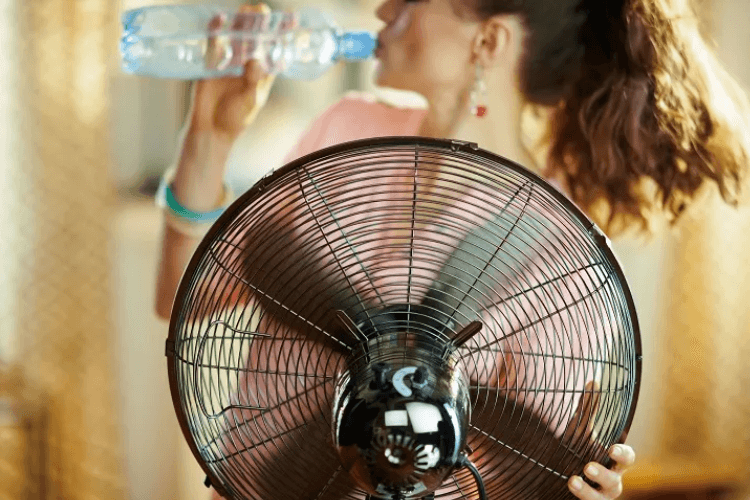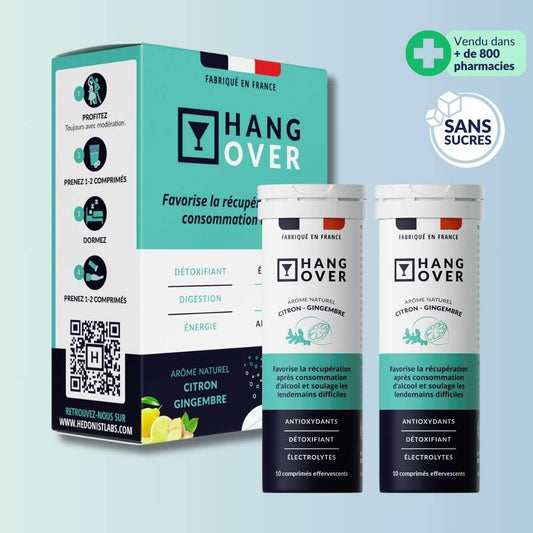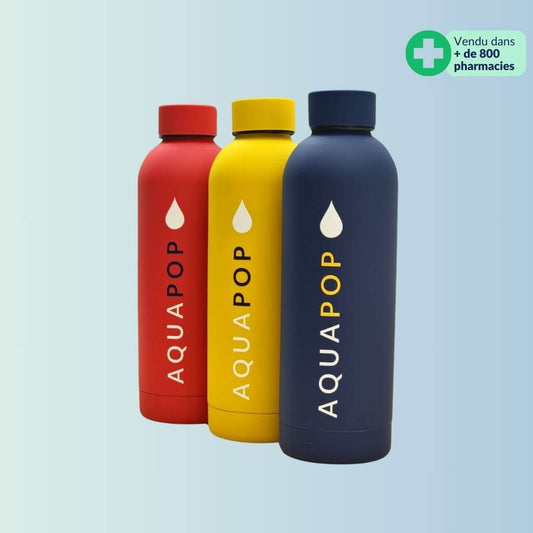The hedonist Labs laboratory
As the mercury climbs, understanding our water needs becomes a matter of survival. Increasingly frequent and intense heat waves challenge us to rethink our water consumption to maintain our health and well-being. As the climate changes, it's vital to recognize and respond to our body's increased hydration requirements.
During heatwaves, how much water do we really need to stay safe and healthy?
In a world faced with increasingly frequent and intense heatwaves, the question of our real water requirements during such periods becomes crucial. Understanding these needs is essential to ensure our well-being and health, and to prevent the harmful consequences of dehydration. In the face of rising temperatures and their impact on public health, it is imperative to closely analyze our water needs to adapt effectively to these extreme climatic conditions.
FACTORS INFLUENCING WATER REQUIREMENTS
Understanding water requirements during hot spells depends on several crucial factors:
- Temperature: When the temperature rises, our body reacts by sweating more to regulate its internal temperature. Sweating is an essential mechanism for cooling the body, but it also leads to significant water loss. As a result, the hotter it gets, the more water we need to compensate for this increased water loss.
- Physical activity: During hot spells, our level of physical activity can also influence our water requirements. When we're active, whether through work, exercise or other activities, our bodies generate even more heat, leading to increased perspiration and therefore greater water loss. It is therefore crucial to take into account our level of activity in order to adapt our water consumption accordingly and avoid dehydration.
- Atmospheric humidity Atmospheric humidity can play an important role in our ability to regulate body temperature. When humidity is high, it can be difficult for perspiration to evaporate from the skin, making it more difficult to regulate body temperature. Consequently, even if the temperature is not extremely high, high humidity can still increase our need for water to compensate for this difficulty in cooling down effectively.
HEALTH RISKS ASSOCIATED WITH DEHYDRATION
Dehydration, particularly during periods of high heat, presents serious health risks, including :
- Sunstroke and heatstroke Severe dehydration can lead to sunstroke or heatstroke, serious medical conditions that occur when the body is unable to effectively regulate its internal temperature. Symptoms can include headaches, dizziness, confusion, red, hot skin, rapid breathing and a rapid pulse. Without immediate treatment, these conditions can lead to serious complications and even death.
- Effects on vulnerable populations: the elderly, children and people with certain medical conditions are particularly vulnerable to the adverse effects of dehydration during periods of extreme heat. Elderly people may have a diminished sense of thirst and a reduced ability to regulate their body temperature, making them more susceptible to dehydration and associated complications.Similarly, children have a higher surface-to-volume ratio, making them more susceptible to dehydration. People suffering from chronic illnesses such as diabetes, cardiovascular disease or kidney disorders may also be more vulnerable to the effects of dehydration due to their reduced ability to regulate body fluids. It is therefore essential to make these populations aware of the risks of dehydration, and to ensure that they have adequate access to water during periods of extreme heat.
WATER REQUIREMENTS BY DEMOGRAPHIC GROUP
Water requirements vary according to demographic group. Here is an assessment of recommendations and practices adapted to different groups
:
- Healthy adults: General water consumption recommendations vary, but it's often recommended to drink around 2 to 3 liters of water a day for adult men and around 2 to 2.2 liters for adult women, including water from food and other beverages. However, during hot spells, these recommendations may increase considerably due to increased perspiration. Healthy adults are advised to stay hydrated by drinking water regularly throughout the day, avoiding sugary drinks and limiting alcohol consumption, which can increase dehydration.
- Children: Children have specific water requirements due to their smaller size and higher metabolic rate per unit of body weight. General recommendations vary according to the child's age, but it's important to ensure that they drink enough water throughout the day. During hot spells, it's particularly important to monitor their water intake and encourage them to drink regularly, even if they don't necessarily feel thirsty. Parents should also ensure that their children have access to fresh drinking water, especially when they are playing outdoors or taking part in physical activities.
- Elderly: Elderly people are more likely to suffer from dehydration due to age-related physiological changes, such as a decreased sensation of thirst and a reduced ability to regulate their body temperature. In addition, certain medical conditions common in the elderly, such as diabetes or cardiovascular disease, can increase the risk of dehydration. Therefore, it's essential that the elderly drink enough water throughout the day, even if they don't feel thirsty. Caregivers and relatives must also be alert to signs of dehydration in the elderly, and ensure that they have access to fresh, drinkable water at all times.
WATER SOURCES AND CONSUMPTION RECOMMENDATIONS
During periods of intense heat, it's essential to ensure adequate water intake. Here's an overview of different water sources and recommended consumption:
- Drinking water: There's no substitute for drinking water to maintain hydration. Water is essential for many bodily functions, including body temperature regulation and waste elimination. We recommend drinking water regularly throughout the day, even before you feel thirsty. To maintain an adequate supply of drinking water, it is advisable to always have access to fresh, clean water, whether at home, at work or on the move.
- Other beverages Although water is the best option for hydration, certain beverages can also help maintain a good fluid balance. Beverages such as natural fruit juices can provide electrolytes and vitamins in addition to hydration, but they can also be high in sugar, so it's important to consume them in moderation. Sports drinks can be useful for replacing electrolytes lost during intense physical activity, but they can also contain a lot of added sugar. It is therefore preferable to reserve them for situations where they are really needed, such as after prolonged exercise.
- Water-rich foods Some foods are naturally rich in water and can contribute to our fluid intake. Fruits such as watermelon, melon, strawberries and oranges have a high water content and can therefore help maintain hydration. Vegetables such as cucumber, lettuce and celery are also rich in water. Incorporating these foods into our daily diet during hot weather can contribute to our water intake and overall hydration.
STRATEGIES FOR STAYING HYDRATED
To stay hydrated during hot spells, here are a few strategies to consider:
- Planning Hydration: It's essential to plan your day according to your hydration needs. Before going out, make sure you have access to drinking water. Carry a reusable water bottle with you and set yourself regular reminders to drink water throughout the day. Also try to limit your prolonged exposure to the sun during the hottest hours of the day, when perspiration and water requirements are highest.
- Awareness Recognizing the signs of dehydration is crucial to taking preventive action. Be alert to symptoms such as thirst, dry mouth, dizziness, headaches and fatigue. If you experience these symptoms, take immediate steps to rehydrate by drinking water and resting in the shade or in a cool place.
- Additional precautions For those who work outdoors or engage in intensive physical activity during hot spells, extra precautions are necessary. Try to schedule your work or exercise early in the morning or late in the day, when temperatures are cooler. Wear light, breathable clothing and use a hat and sunglasses to protect yourself from the sun. Take regular hydration breaks and rest in the shade as soon as possible. If you experience symptoms of overheating or dehydration, stop immediately and seek medical help if necessary.
It's imperative that we encourage others to take similar steps and raise awareness of the risks of dehydration during heatwaves. By staying hydrated and taking care of each other, we can all help prevent dehydration-related complications and stay healthy, even in hot weather.





